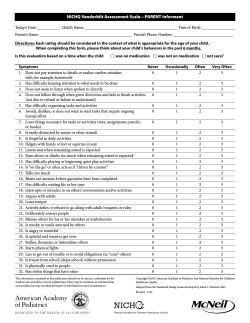
Workshop 1: 29 November 2011 S.Coombes th
Workshop 1: 29th November 2011 S.Coombes Initial Activity In groups distinguish main differences between formative and summative assessment Students at SEEVIC college will learn best if we all agree on these principles…… • It’s okay if students don’t fully understand a concept first time, learning takes time. • If work is graded, try to get students to beat their own record, not someone else’s. • What counts is whether students understand the problem and solution, or question and answer eventually • Not whether they get it first time in a lesson Students at SEEVIC college will learn best if we all agree on these principles…… • Making mistakes is part of the learning process and we should not be humiliating or critical towards initial errors of judgement. • Mistakes are useful because they tell us where we can improve. • Its good for learning to admit to not understanding and to admit to mistakes and then ask for clarification. • We should never ridicule each other for mistakes, even in a joking way • Students will learn from mistakes if they find out how to do it without mistakes next time, and really understand this. Assessment Matrix Positive feedback Feedback for advancement And Understanding Negative feedback Constructive Feedback Questioning for understanding Please refer to the Oral Questioning Sheet •Progressive questioning and targeted questioning are the most advantageous in differentiating the learning within a lesson. •There are opportunities to stretch and challenge both the more and less able students and also develop understanding of core concepts to the whole class. ICT facilitation Establish a location (e.g., bulletin board, or e-mail address) where students may leave or post questions about concepts, principals, or processes that they do not understand. This technique may benefit students who are uncomfortable saying aloud that they do not understand. Analogy Prompt (can be practical) (A particular concept, principle, or process) is like________? (Playground solar system example) Visual Representation (Drawing on the white board of a concept Map, Flow Chart/Basic Diagram) Learning Partners to consolidate key learning points in lessons and in assignments Mix social groups (Differentation/BM) Students peer assess (Afl) Can inform teacher on verbal understanding of students (Afl) Consolidate independent student reflection. How ‘learning partners’ works • First of all everyone please get up and sit next to someone who has got a different piece of work then their own(there are only two, one is red highlighted). • Second follow guidance from teacher and self/peer assess each others work and your own work. References Browning J (2009)Questioning students to elicit deeper understanding. DuBois L S (2006) Student led learning Hattie J (2010) Improving Learning in the Classroom Petty G (2009) Formative assessment and its effect on quality learning
© Copyright 2025





















